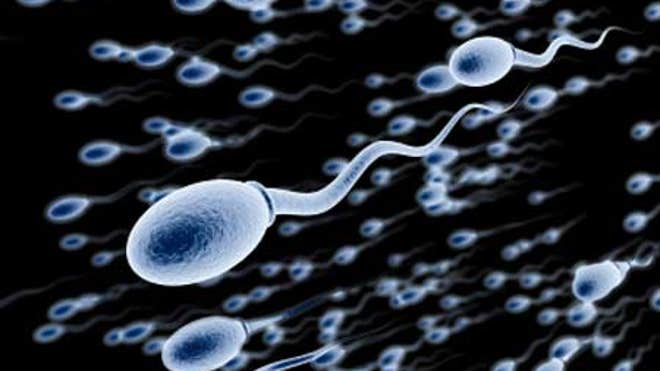Infertile men may be at greater risk for developing cancer
Infertile men who have significantly limited levels of sperm production may be at an increased risk for developing an even more serious health condition: cancer.

In a new study led by urologists from the Stanford University School of Medicine, men under the age of 30 who were diagnosed with azoospermia – a form of infertility in which there are no measurable levels of sperm in the ejaculate – had an eight-fold cancer risk compared to the general population.
“The thought was that if the testicles don’t develop correctly, and they can’t produce sperm… the normal pathways get dysregulated, which perhaps leads to cancer,” lead author Dr. Michael Eisenberg, assistant professor of urology at Stanford and director of male reproductive medicine and surgery at Stanford Hospital & Clinics, told FoxNews.com.
Infertility is a fairly common condition in the United States, affecting 4 million men. Of this group, 5 to 10 percent are diagnosed as azoospermatic, and about 600,000 of these men are of reproductive age.
There are two main reasons for the occurrence of azoospermia. In obstructive azoospermia, a blockage in the vas deferens, epididymis, or ejaculatory duct prohibits sperm from being released. Fortunately microsurgical reconstruction can help restore sperm into the man’s semen, allowing them reproduce normally. But in non-obstructive azoospermia, there is an unknown issue with sperm production, leading to undetectable levels of sperm in the semen. While some treatments can help to extract the sperm for in vitro fertilization, therapies for this kind of infertility are limited.
To better understand the relationship between cancer, azoospermia and infertility, Eisenberg and his team analyzed data from 2,238 infertile men with a median age of 35.7 who had visited an andrology clinic at the Baylor College of Medicine in Houston. Of the cohort, 451 had azoospermia and 1,787 had another form of infertility.
Once the men underwent a semen analysis at the clinic, the researchers followed them for an average of 6.7 years to see if they showed up in the Texas Cancer Registry.
“We basically looked for all kinds of cancer,” Eisenberg said. “In azoospermic men, two developed testicular cancer compared to none in the fertile population. But they developed other cancers too, such as melanoma, prostate, etc.”
Overall, 29 of the 2,238 infertile men developed cancer within an average 5.8-year period from when they visited the clinic. This contrasted with the 16.7 cases the researchers estimated would occur in the normal fertile male population, meaning the infertile men were 1.7 times more likely to develop cancer.
But within the group of infertile men, the researchers found a major disparity. Those with azoospermia were nearly three times as likely to develop cancer as the general population, while the other infertile men were only 1.4 times as likely.
According to Eisenberg, the study does not necessarily show that infertility leads to cancer. Both smoking and obesity, well known risk factors for cancer, are also known to contribute to infertility. Therefore lifestyle choices could be the common thread between the infertility and cancer relationship. However, Eisenberg said the pathways for both cancer and abnormal sperm production are similar.
“In order to produce sperm, you need to replicate cells along a pathway – one precursor cell is turned into multiple sperm cells,” Eisenberg said. “(In infertility) the pathway kind of gets out of whack, which leads to abnormal cell proliferation” – which is a defining characteristic of cancer.
Given the high association between cancer and azoospermia, Eisenberg said it’s important for men to take a more active role in their health, and they should see a doctor as soon as they discover something is wrong.
“When you look at men that come in, a lot of times they’ve never seen a doctor before – they’re kind of being dragged in by their wives or partners,” Eisenberg said. “But this could be a warning sign that other things could be going on, and we could be paying attention to their health during the early, treatable stages. So the take home message is that if a man is infertile, it tells more about themselves, and it can be a barometer for their overall health.”